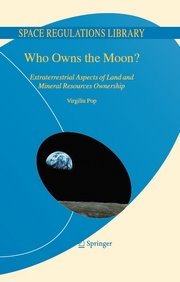If the Absolute lacks an atom, it is not absolute anymore. And the Olympian absolute lacks an only thing, sufficient though to put the Gods on the same level with the mortals: they cannot oppose Destiny.
From a certain time now - who could tell its measure - Zeus seemed touched by a mysterious disease. He ceased to throw his flashes of light and malediction over Greece and Arcadia; he would rather spend some time now and then in the cave that sheltered his infancy. Rumours circulated by the nymphs were telling that the master of the Olympus was gathering his thoughts there. Sitting on a stone, with his head in his palms, he was meditating like the most ordinary philosopher. A meditating God was of no comprehension - especially if the God was the Master of the Olympus himself, known for his impulsivity, for the trigger-happiness shown in his doings. However, it seemed that reality was in tone with the rumours. Zeus himself was scared of his recent human behaviour - especially to act like a philosopher! He hated mostly the philosophers - as they were arrogating that they were immortal through their everlasting teachings. Such a daring fact could not pass unpunished; Zeus himself happened to descend on Earth to punish the thinkers, wearing the mantle of a poison cup.
Not to search a solution in a desperate case seemed to Zeus more of despise than the philosophy. Especially now, when the very Master of the Olympus happened to be in danger. He was afraid that the fact of defeating his father - Chronos- would be eventually punished. He was aware that the destiny of a God was not immune to revenge. And he was frightened by the thought that Chronos will pay back for the humiliating fact of being defeated by his own son.
Olympians noticed also that Zeus begun to act like an elderly man. And, when it happened - though rarely - to strike the earth with flash and thunder, he was doing it with shaking hands. The Master of the Universe was, therefore, growing old.
He realised himself, one day, that the revenge promised by his father could not come, as it was already there. The god of the time was making old, with every second and with every aeon, his usurping son. Thus, eternity became finite time also for Zeus. And finite time meant death - a word unknown up to then by Zeus.
Accustomed from a certain time with meditation, a thought came to Zeus’s mind. An idea that could annihilate the awful revenge. He could try to hit the destiny by killing his father. Annihilating, in other words, the Time.
He begun by destroying all the sandglasses existing in the Olympus and on Earth. But, widowed of sandglasses, time ceased not to flow. Then, for the days not to exist anymore, Zeus ordered Helios to stand fixed on the sky and descend no more. But time continued with no cease its way. Even without days. Next move from Zeus was the immobilisation of the Moon on a fixed location on the firmament. Furthermore, as Chronos gave no signs of defeat, Zeus stopped the Earth, cancelling the years. Then, the stars followed, and the galaxies. With no result. Until he realised that the Universe was pulsating of life. And every life was, by itself, an infallible horologe. Therefore, he destroyed all the beings on Earth. But in the Olympus one could still hear the rhythms of divine banquet, signs of the passage of time.
Therefore, he killed all the Pantheon. He killed, in other words, the last traces of time.
Once finished his destructive endeavour, Zeus thought that, after saving his own life by annihilating all the others, he deserves a moment of rest. Not exactly a moment, as time did not exist anymore. An eternity. Therefore, he laid on an Olympian chair.
In the silence of the rest, a rhythmic pulsation, like a tic-toc, begun to make itself heard to Zeus.
His own heart.
Virgiliu Pop
Ameliamentum
6 hours ago






0 comments:
Post a Comment